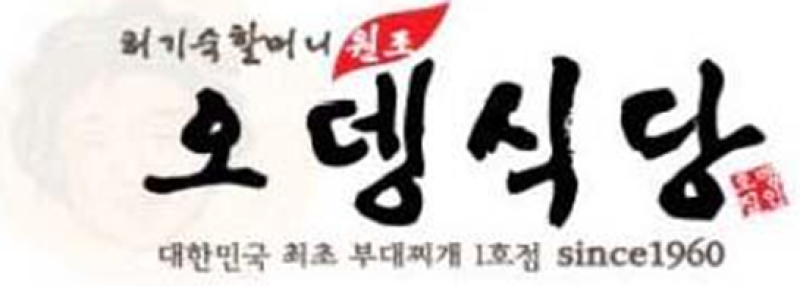The South Korean Patent Court recently ruled that the trademark Fishcake Restaurant for a sausage stew delivery service should be invalidated, on the ground that the mark may mislead consumers to believe that the service delivers dishes containing fishcakes, which was not the case (Patent Court Decision 2021Heo4003, November 4 2021).
Since Fishcake Restaurant is a famous trade name as the original restaurant for the South Korean-style sausage stew called Budae Jjigae, this decision may have a significant impact in South Korea.
If The Cheesecake Factory, a famous US-based restaurant chain, sells products other than cheesecakes, could this trademark also be invalidated on the same ground in South Korea? Or what about Taco Bell selling food other than tacos, or Burger King selling more than just burgers?
The South Korean Supreme Court previously held that Wendy’s Hamburger registered for ice cream, popcorn, pastries and buns for hamburgers is not a deceptive mark, because consumers would not misunderstand the designated goods as hamburgers when seeing this mark (Supreme Court Decision 95Hu187, July 28 1995).
However, according to the Patent Court’s recent decision, The Cheesecake Factory selling dishes other than cheesecake may be regarded as deceptive if consumers misunderstand the nature or quality of the goods. Thus, it would be worthwhile to examine this case in more detail.
Background
Fishcake Restaurant (Odeng Sikdang in South Korean) is the name of a restaurant started in the early 1960s by Grandma Gisuk Huh, who sold fishcake (odeng in South Korean), at a food stall in Uijeongbu, located to the north of Seoul, South Korea.
Grandma Gisuk Huh has been selling stew dishes with sausage and ham (Budae Jjigae) since the beginning of her business, and this dish has become a signature item on her menu. In her recipes, sausage stew does not contain fishcake, but fishcake is served as a side dish.
Fishcake Restaurant has been in business for three generations, and it has been introduced as the origin of South Korean-style sausage stew, Budae Jjigae, in cookbooks and various media such as KBS, SBS, MBC and major press publications in South Korea.
As Fishcake Restaurant became famous for its sausage stew, several other sausage stew restaurants opened in the alley where Fishcake Restaurant is located, and this area has been called Uijeongbu Budae Jjigae Alley.
Invalidation action against Fishcake Restaurant
Grandma Gisuk Huh recorded her trade name in 1968, and operated as a private business without registering her trademark with the South Korean Intellectual Property Office (KIPO) for many years.
Fishcake Restaurant Co Ltd was incorporated as a legal entity in 2009. Fishcake Restaurant and Grandma Gisuk Huh then applied for and registered four Fishcake Restaurant marks in connection with restaurants and related goods and services in classes 29, 35, 39, and 43.
The specimen of the mark is shown, and is combined with the text Fishcake Restaurant, Grandma Gisuk Huh, Original, the first sausage stew in South Korea, since 1960, etc.

A competitor, Ms Jeong, has been running a sausage stew restaurant in the vicinity of Fishcake Restaurant since around 2000. She changed her trade name to Original Fishcake Restaurant in 2012.
Before the change of her trade name, in 2008, she registered a trademark for Jeong Original Fishcake Uijeongbu Budae Jjigae Fishcake Restaurant. She then lodged invalidation actions against Fishcake Restaurant’s four trademark registrations.
The Intellectual Property Trial and Appeal Board (IPTAB) of KIPO dismissed the competitor’s petitions, because i) the mark is inherently distinctive since it is combined with unique elements, such as Grandma Gisuk Huh, in addition to Fishcake Restaurant; ii) the mark has acquired a secondary meaning through its long-term use; and iii) there is no likelihood of misunderstanding as to the nature of goods, since it is already widely known to consumers.
The competitor filed an appeal to revoke the trial decision with the Patent Court only for sausage stew delivery services in class 39. The rest of the trial decisions were finalised without appeal.
Patent Court’s decision
The Patent Court revoked the IPTAB decision and found that the Fishcake Restaurant mark is likely to cause misunderstanding as to the nature of goods, despite its fame.
The Patent Court reasoned that since fishcake is used as a food ingredient, fishcake could be regarded as a term related to “food delivery services, including sausage stew dishes”. The court indicated that the subject mark directly implied delivering sausage stew with fishcake in it due to the “Fishcake” and “sausage stew” portions of the mark.
The court pointed out the evidence showing that consumers mistakenly thought that the sausage stew sold at this restaurant contained fishcake. The court also recognised the well-known status of Fishcake Restaurant for consumers for sausage stew; however, this fact does not guarantee that there is no risk of consumers seeing the subject mark being misled to believe that it delivers sausage stew with fishcake in it.
Accordingly, the Patent Court ruled that the mark at issue be invalidated pursuant to the South Korean Trademark Act, and the IPTAB’s decision be revoked. The registrant, Fishcake Restaurant and Grandma Huh, did not appeal against the Patent Court decision. Thus, the case was returned to the IPTAB to revoke the original decision.
Implications of the Patent Court decision
The Patent Court ruling has clarified once again that deceptiveness is a ground for non-registration of a trademark even if i) the mark is recognised as distinctive in view of its overall elements; and ii) the mark contains a famous trade name that has acquired distinctiveness by way of extensive use.
Furthermore, it shows that trademarks registered in violation of the deceptive mark provision can be invalidated at any time without applying the five-year statutory period of limitation, as this rule is an absolute ground for rejection.
The reasoning for this decision suggests that it is critical to select and use a trademark that is not likely to cause misunderstanding as to the nature or quality of the goods, since one of the main purposes of the Trademark Act is to “protect consumers”.
Recently, it has become popular in South Korea to use famous brands for products in fields other than that in which the brand is known as a marketing method to arouse consumers’ interest. Examples of this so-called funsumer marketing include Seoul Milk body wash, a sparkling drink with a famous marker brand Monami Magic, and chocolate in a shoe polish case with the well-known shoe polish brand Horse. These are sold in collaboration with the owners of these famous brands.
However, this Patent Court decision indicates that a trademark may be rejected or invalidated if it may cause misunderstanding with respect to the goods that it covers.
Min Son, PhD
Managing partner, Hanol IP & Law












